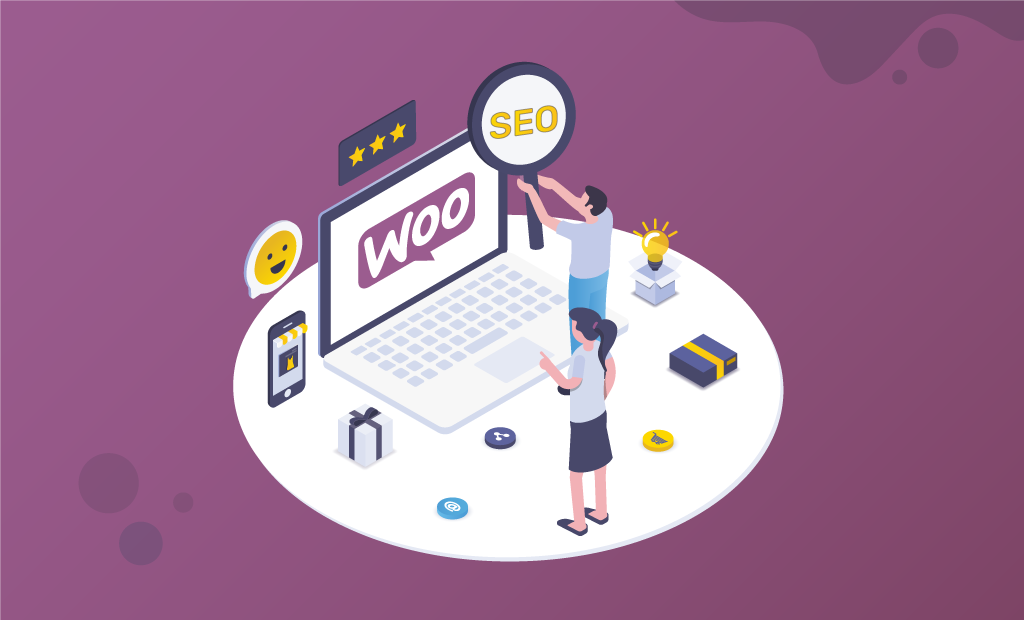Woocommerce is the plugin for WordPress that turns this content manager into an online store.
As you already know, for that online store to achieve sales, it will need to receive online traffic in the form of potential customers interested in its products.
Therefore, we want to help you understand all the aspects that must be taken into account to perform SEO for Woocommerce correctly, and part of the traffic you need to achieve sales can be obtained through organic traffic.
Essential Keywords For Your Online Store
The first thing you should do to SEO for Woocommerce is to determine what keywords will represent your products and categories and what keywords you can use to create content through the blog.
Of course, these keywords cannot be invented or even chosen at random, they must be keywords studied and verified through tools such as Keyword tool planner, Ahrefs, or Semrush.
With these services, you will be able to know what users are really looking for in relation to the theme of your store. Never assume that you know what people are looking for and want without doing an effective keyword search.
Once you can identify the most profitable keywords, you can start planning the precise content for your blog or your different pages. This correct identification of the keywords will help you to choose with precision the categories and subcategories of your products and web architecture.
Effective Web Architecture
Not only buildings need good architecture to be functional, web pages too. The web architecture is the one that refers to the entire structure of the site, it is precisely the skeleton of your online store.
If this architecture is poorly planned, you can still get traffic through the blog but the positioning of your online store will be much less effective.
Your product categories should group the products that share a certain common characteristic.
Although there are simple structures, there are also online stores that require the creation of product subcategories which complicates things a bit more.
Always try to organize your categories and subcategories in a logical and natural way so that customers can find your products intuitively and quickly.
Also, keep in mind that the same product can be in several different categories or subcategories. Some of them were created specifically to satisfy user searches.
It is important to note that for these categorizations to be effective, it is necessary to first complete the previous step of the study of keywords.
By choosing the correct words, the one that users are looking for, your store will have much better positioning than if you choose keywords that also identify your products but do not represent real searches by your potential customers.
Classification Before Products
Having this classification completely clear before starting to upload the products to your store, it will allow you to create a structure that favors the SEO of your Woocommerce.
Just as the written content will allow you to guide your potential customers to your products, the correct selection of your keyword for the category of said product will favor the positioning of that category and products within the category.
It is worth clarifying that although the product itself changes over time, your product category must not change with the product, that is, your product category must be stable over time.
Continuous changes in your categories and subcategories would cause constant redirects-in the best of cases-which would negatively affect the positioning of the online store.
Optimal Mapping Of Your Website Is Mandatory
Generating a map of your online store allows you to assign pages and articles to specific keywords.
To be successful in SEO it is necessary that different pages on the same site do not compete with each other for the same keywords, which is known as keyword cannibalization.
Well, your SEO efforts will be cut short by inefficient mapping. Mapping involves organizing your work.
You can create a spreadsheet with your keywords and URLs thus avoiding accidental competition with yourself.
Simple And Readable URLs
The structures of your URLs must be simple and readable. Avoid complex structures so that the robot does not get confused and ignores your content.
Many people suggest in the SEO Discussion platform that In WordPress in particular, you can optimize your URLs from Settings> Permalinks. Your best option is always <Post name> as long as you are using the keywords correctly to name your pages, products, and posts.
Do not forget to perform 301 redirects, in case you have to change any URL to avoid the loss of traffic.
Use Descriptions To Highlight Products
If you describe your product like 1000 other websites would then your ranking will be confined to oblivion.
The search engines will not rank any of your products, since you will be publishing duplicate content.
Therefore, you need a high-quality product description to boost your Woocommerce SEO. Write descriptions in more depth and detail, use links and additional information, FAQs, etc.
Use Meta Titles And Descriptions
Create unique meta titles and meta descriptions to improve SEO in Woocommerce as these meta tags are an excellent opportunity to attract people to your page.
If you use a plugin like Yoast SEO, you can add automatic additional fields to both the title and the description.
Don’t Forget The Link Building
Create a solid internal link strategy and enhance link building as both communicate to search engines the importance of the content you offer.
For this, it also uses specific keywords for the content that is being linked in the anchor text.
Take Advantage Of The Amplification Of Social Media
The positioning of your Woocommerce can take advantage of the advantages and amplification of the use of social media, because, when a page is shared repeatedly, search engines understand that said content is of interest to users because it offers them some value.

